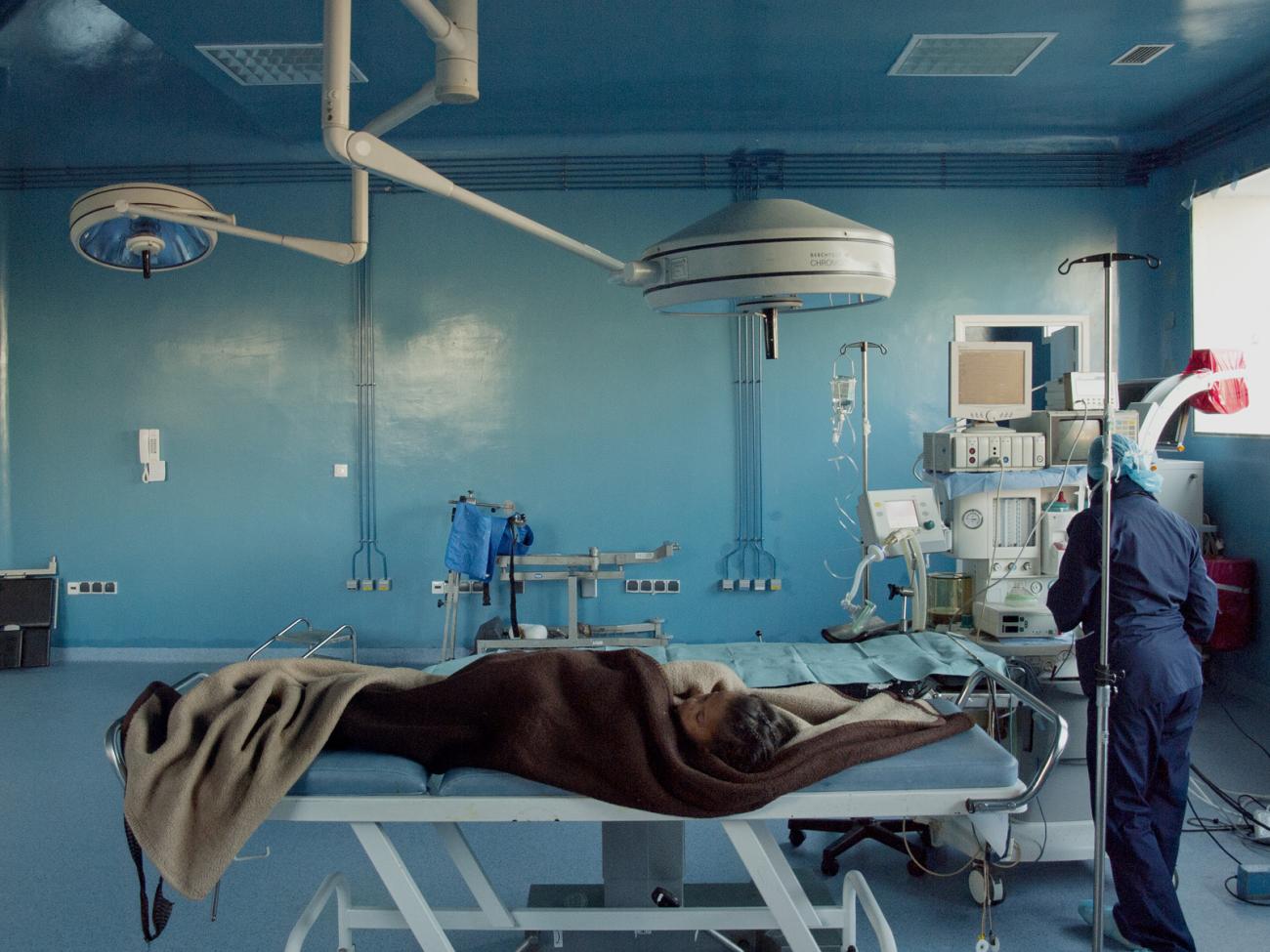Across Morocco, teams of regional hospital management staff received a one-year training on strategic planning and management in order to transform their hospitals.
Achieving UHC means strengthening the health system at all levels. Hospitals in Morocco face a number of challenges including a lack of capacity for developing and implementing improvements.
All regional hospitals now have a new hospital strategy document, new governance processes and undertake selfassessment. Every hospital has improved performance and better patient satisfaction.
The Ministry of Health, with support from WHO and the Mohammed VI University of Health Sciences, undertook the programme, which will now be expanded to all hospitals nationwide.
The MBA in hospital management has made it possible to carry out a managerial transformation within Fès Hospital. It is the birth of a new dynamic, very participatory, with a change in behaviours and reinforced motivation among health personnel. This responds much better to the real needs of our patients.
Morocco is committed to universal health coverage (UHC) having recently pledged to expand health care to 90% of the population, especially to the poorest people. A key aspect of achieving UHC is strengthening the health system at all levels. A recent project, undertaken by the Ministry of Health and supported by WHO and Mohammed VI University of Health Sciences, has trained teams hospital staff to implement a shared vision for strategic management. The training has taken place in all Regional Hospitals and will gradually expand to all hospitals nationwide.
Why is hospital management training needed? Hospitals in Morocco face a number of challenges. They generally lack autonomy and find it hard to plan and manage human resources. This is compounded by a health workforce shortage nationwide, with a poor distribution of workers between hospitals. As with elsewhere in the world, health workers can suffer from low motivation, which affects their performance. In the absence of clear strategic plans for hospital management quality assurance or accreditation programmes and an integrated information system, there was low capacity for developing and implementing any improvements.
"The training of hospital managers in Morocco responds to a need expressed by health authorities in partnership with WHO and in the context of health policy and hospital reform. This training aims to solve the many problems of hospitals such as weak strategic planning and governance, performance-related issues, human resources planning and management, financial management, information systems quality and patient safety,” said Dr Belouali Redouane, Director, International Public Health School of Mohammed VI University of Health Sciences
During the past few decades, Morocco has conducted several hospital-level reforms focusing on organizational aspects and management tools in an attempt
to address these issues. Yet there was limited training for managers to implement these tools. The Ministry of Health realized that the reforms were not reaching their potential, and that real change needed to be supported by strong leadership at the local level.


The training brought together a leadership team in each Regional hospital comprising the Hospital Director, the Head of Nursing and the Administration Manager. This team took part in a one-year programme with 20 modules from University Mohammed VI, with coaching and supervision supported by the Ministry of Health and WHO. WHO Regional and Country Offices were involved in the development of the training programme, identifying specific training needs for hospitals managers.
As well as funding the programme, WHO is also involved in the monitoring and evaluation of the training programme. On completion, each hospital team member receives a Master's degree from the University Mohammed VI in business administration, which is focused and adapted to public hospital management. The WHO Regional Office (EMRO) has signed a Memorandum of Understanding with University Mohammed VI, which aims to become a health science center of excellence in education, research and innovation especially in the area of governance and hospital management.
"This practical MBA in Hospital Management targets competencies related to strategic thinking and organizational As well as funding the programme, WHO is also involved in the monitoring and evaluation of the training programme. On completion, each hospital team member receives a Master's degree from the University Mohammed VI in business administration, which is focused and adapted to public hospital management. The WHO Regional Office (EMRO) has signed a Memorandum of Understanding with University Mohammed VI, which aims to become a health science center of excellence in education, research and innovation especially in the area of governance and hospital management.
Making the best use of tools
The programme focused on practical ways to tackle current hospital challenges, and provided solutions on how to initiate change and reform using the managerial tools available. These included tools for defining and implementing the strategy, organizational strategy development, improving services, driving performance, improving quality of care and stress management. The training took place while the leadership team continued with their everyday activities, giving them the chance to put the tools into practice. The team also informed the rest of the hospital staff about the transformation process underway.
As a result of the training, each hospital aimed to deliver in five areas:
■ A hospital strategy document
■ New organization and governance involving all hospital professions
■ Improved hospital performance
■ Self-assessment of quality based on WHO and MOH guidelines
■ Improved patient satisfaction
All of the Regional Hospitals achieved these five areas and some experienced other additional outcomes. The leadership teams from all the hospitals involved also had opportunities to share their experiences of transformation together during the training.
As hospital management and quality of care improves, Morocco will make solid progress towards achieving UHC

Photo: WHO.
